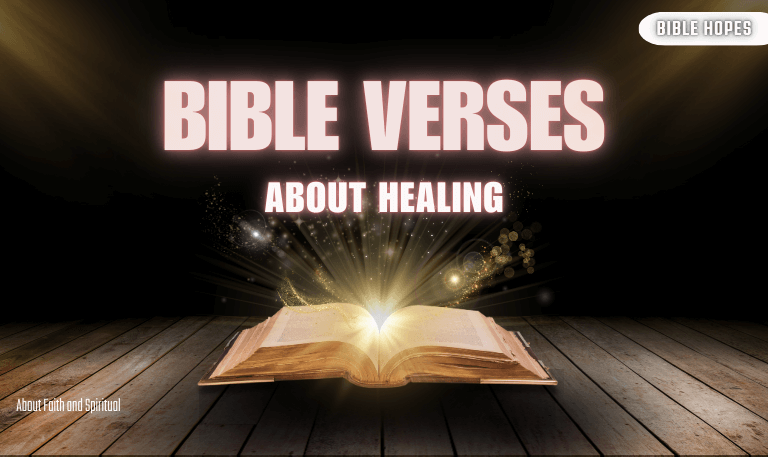Governments hold tremendous power in shaping societies, but history and the Bible alike reveal that power can be abused. Wicked governments — marked by corruption, injustice, and oppression — are condemned repeatedly throughout Scripture. For believers seeking wisdom and guidance, understanding Bible verses about wicked government offers clarity on God’s view of corrupt leadership and the proper response to unjust rulers.
This article explores the biblical perspective on wicked governments, providing key verses from both the Old and New Testaments, the stories of notable biblical figures, and practical applications for today. With extensive keyword integration, in-depth analysis, and clear structure, this article aims to serve as the ultimate resource for anyone searching for answers on this critical topic.
What Does the Bible Say About Government?
From Genesis to Revelation, the Bible addresses government as a necessary institution ordained by God to maintain order, justice, and peace. Romans 13:1 states:
“Let everyone be subject to the governing authorities, for there is no authority except that which God has established.” (Romans 13:1, NIV)
However, Scripture also makes clear that human governments can fall into sin and corruption, becoming tools of oppression rather than justice. The Bible doesn’t shy away from calling out wicked rulers and governments, warning of consequences for their evil deeds. Understanding the Bible’s view on wicked governments involves balancing the biblical call to respect authority with the clear condemnation of rulers who abuse their power.
Read Also: Bible Verses About Grandchildren
Defining Wicked Government in Scripture
In biblical terms, a wicked government is one that governs through injustice, corruption, oppression, and idolatry. Wicked rulers use their authority for personal gain, manipulate laws, and silence the righteous.
Biblical Definition Highlights:
Oppression of the vulnerable: Exploiting the poor and weak (Isaiah 10:1-2).
Corruption and bribery: Leaders accepting bribes to pervert justice (Exodus 23:8).
Violence and tyranny: Using fear and force to maintain control (Psalm 94:20).
False prophets and idols: Leaders who reject God’s authority (Jeremiah 22:15-16).
Key Characteristics of Wicked Governments
Scripture outlines several defining traits of wicked governments:
Injustice: Failure to uphold righteousness and truth (Proverbs 17:15).
Exploitation: Taking advantage of people for selfish ends (Amos 5:11).
Deception: Leading people astray with lies and false promises (Isaiah 9:16).
Violence and cruelty: Use of force to silence dissent (Micah 3:1-3).
Idolatry: Placing power above God (Daniel 3:1-30).
These characteristics often lead to societal decay and divine judgment.
Old Testament Verses About Wicked Government
The Old Testament is rich with references to corrupt rulers and kingdoms that turned away from God’s law.
Notable Verses and Passages:
Psalm 94:20
“Can wicked rulers be allied with you, those who frame injustice by statute?”Proverbs 29:2
“When the righteous thrive, the people rejoice; when the wicked rule, the people groan.”Isaiah 10:1-2
“Woe to those who make unjust laws, to those who issue oppressive decrees…”Jeremiah 22:3-5
God commands just treatment of the oppressed and warns kings of consequences for wickedness.Exodus 23:8
“Do not accept a bribe, for a bribe blinds those who see and twists the words of the innocent.”
Contextual Insight
Prophets like Isaiah, Jeremiah, and Amos frequently confronted kings and leaders who abused their power, reminding them of God’s covenant and justice.
New Testament Teachings on Wicked Government
The New Testament continues to address government authority but introduces nuanced perspectives, especially under Roman rule.
Key Verses:
Romans 13:1-7
Teaches submission to authorities as God-ordained, but this is debated in context of wicked rulers.Matthew 23:27-28
Jesus condemns hypocritical leaders who appear righteous but are corrupt inside.Revelation 13:1-10
Symbolizes oppressive political powers opposing God’s people.1 Peter 2:13-17
Encourages submission to rulers but emphasizes doing good and conscience.
Balancing Submission and Resistance
While Christians are called to respect authority, the New Testament also honors civil disobedience when commands conflict with God’s law (Acts 5:29).
Bible Characters Who Faced Wicked Governments
Several biblical figures modeled faithfulness under corrupt regimes:
Daniel: Refused to worship idols in Babylon, remained faithful despite persecution.
Esther: Risked her life to save her people from a wicked government plot.
John the Baptist: Boldly confronted Herod’s immorality.
Jesus Christ: Lived under Roman oppression but taught truth and love.
Their stories exemplify courage and integrity.
God’s Judgment on Wicked Governments
The Bible promises that God judges wicked rulers and corrupt systems.
Psalm 75:7
“But it is God who judges: He brings one down, he exalts another.”Isaiah 14:4-23
Prophecy against the oppressive king of Babylon symbolizes divine retribution.Daniel 2:44
God’s eternal kingdom will ultimately replace all earthly governments.Revelation 19:11-21
Depicts final defeat of wicked worldly powers.
Divine justice assures believers that corruption will not prevail.
How Should Believers Respond to Wicked Governments?
The Bible encourages several key responses:
1. Prayer
Intercede for leaders and governments (1 Timothy 2:1-2).
2. Maintain Integrity
Live righteously regardless of external corruption.
3. Speak Truth
Prophetic rebuke and speaking out against injustice are biblical (Ezekiel 3:17).
4. Civil Disobedience
When government demands violate God’s commands, obey God over men (Acts 5:29).
5. Hope in God’s Sovereignty
Trust that God controls history and will bring justice.
Modern-Day Applications of Biblical Wisdom
Applying biblical teachings today involves:
Recognizing injustice in political systems.
Engaging in prayerful and informed civic participation.
Advocating for ethical leadership.
Avoiding despair by trusting God’s plan.
Encouraging community resilience in times of political turmoil.
Read Also: Bible Verses About Despair
Common Misconceptions About Biblical Teachings on Government
Romans 13 means blind obedience — Actually, it emphasizes order but not submission to sin.
The Bible supports overthrowing governments — Scripture advocates justice and integrity, not violent rebellion.
Government is evil — The Bible sees government as a God-ordained institution that can be corrupted.
Christians must avoid politics — Biblical examples show active engagement for justice.
Bible Verses About Wicked Government FAQs
Q: What does the Bible say about corrupt leaders?
A: The Bible condemns corrupt leaders as those who pervert justice, oppress the poor, and reject God’s laws (Proverbs 29:12).
Q: How should Christians respond to wicked governments?
A: By praying, living righteously, speaking truth, and obeying God’s higher laws even when authorities are unjust.
Q: Are there Bible verses that support government overthrow?
A: Scripture doesn’t endorse violent rebellion but calls for justice and patience, trusting God’s timing for change.
Q: Does the Bible promote obedience to all government authorities?
A: Generally yes, but not when authorities demand disobedience to God’s commands (Acts 5:29).
Q: How can I pray for government leaders according to the Bible?
A: Pray for wisdom, justice, humility, and that leaders govern for the common good (1 Timothy 2:1-2).
Q: What Bible verses condemn injustice and oppression by rulers?
A: Isaiah 10:1-2, Psalm 94:20, and Proverbs 29:2 among many highlight God’s opposition to oppression.
Q: How do the Old and New Testament views on government differ?
A: The Old Testament focuses on Israel’s covenant leadership and prophecy against wickedness, while the New Testament stresses spiritual obedience and kingdom priorities under foreign rule.
Q: Can wicked governments be redeemed according to the Bible?
A: Yes, through repentance and God’s mercy, but ultimate restoration depends on God’s sovereign will.
Conclusion
Wicked governments have plagued humanity since ancient times, but the Bible offers both sobering warnings and hopeful assurances. God calls for justice, condemns corruption, and promises ultimate judgment on oppressors. For believers, the path forward is clear: pray fervently, live with integrity, speak truth boldly, and trust God’s sovereign plan. By understanding and applying Bible verses about wicked government, Christians can navigate political complexities with wisdom and faith, becoming beacons of righteousness in an often unjust world.
![15 Bible Verses About Wicked Government [2025 Explained] 1 15-Bible-Verses-About-Wicked-Government-[2025-Explained]](https://biblehopes.com/wp-content/uploads/2025/05/15-Bible-Verses-About-Wicked-Government-2025-Explained.png)


![Bible Verses for Miscarriage | Comfort, Healing [2025] 5 Bible-Verses-for-Miscarriage-Comfort,-Healing-[2025]](https://biblehopes.com/wp-content/uploads/2025/04/Bible-Verses-for-Miscarriage-Comfort-Healing-2025.png)